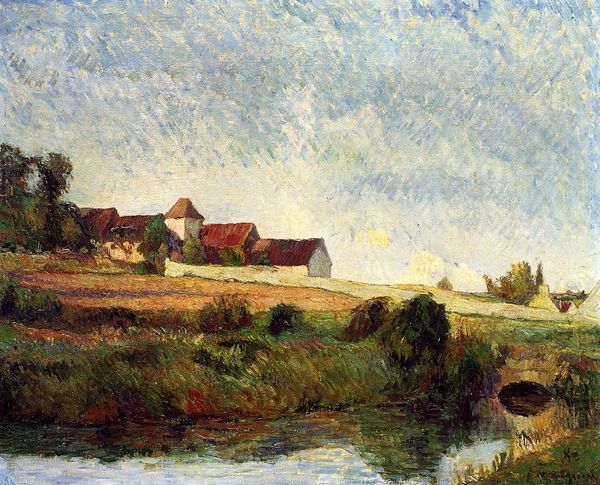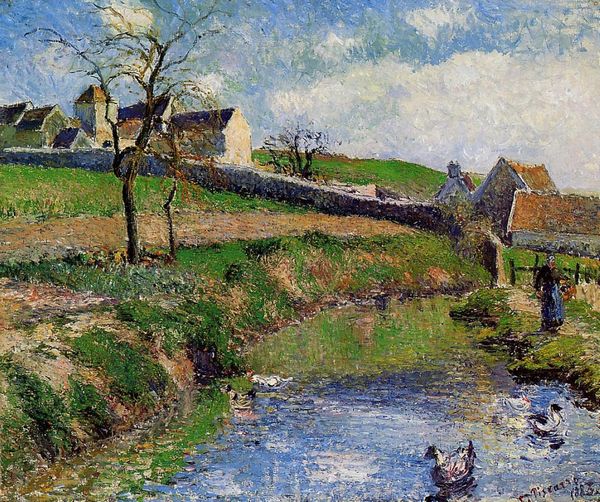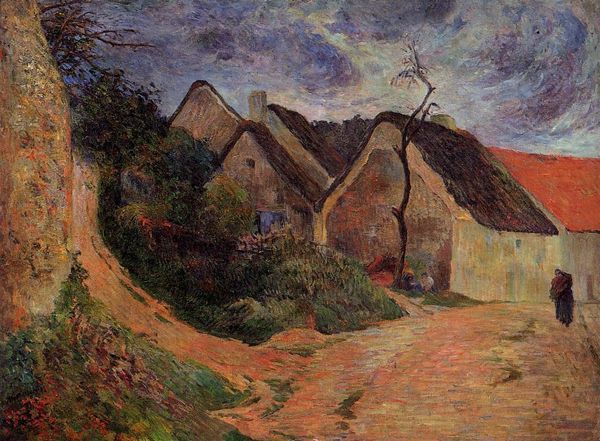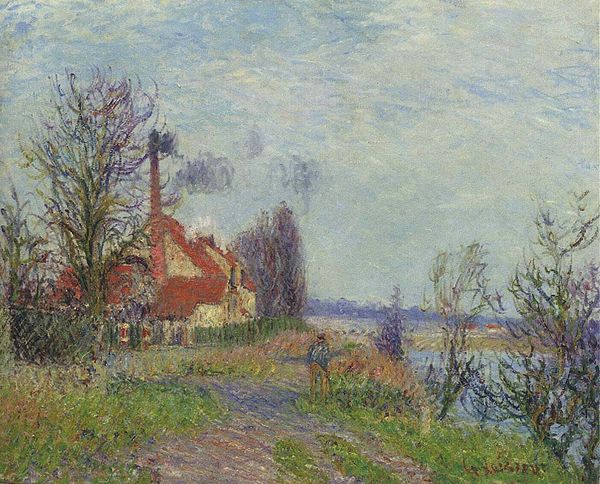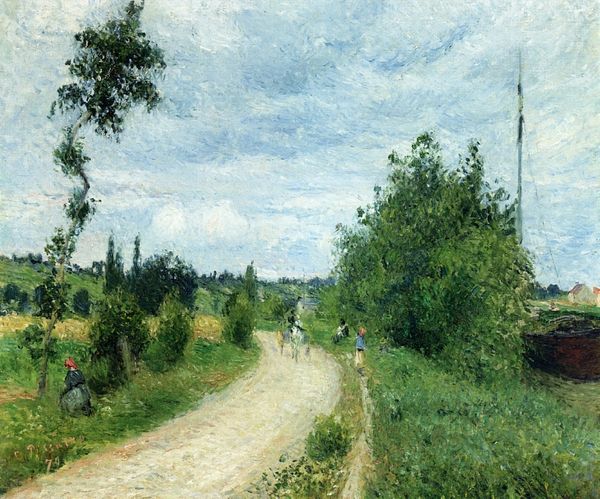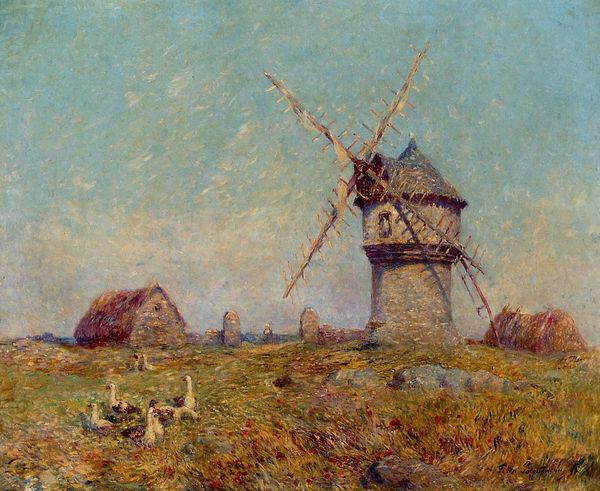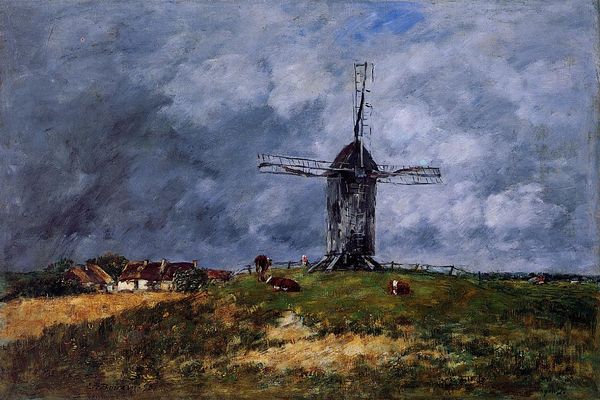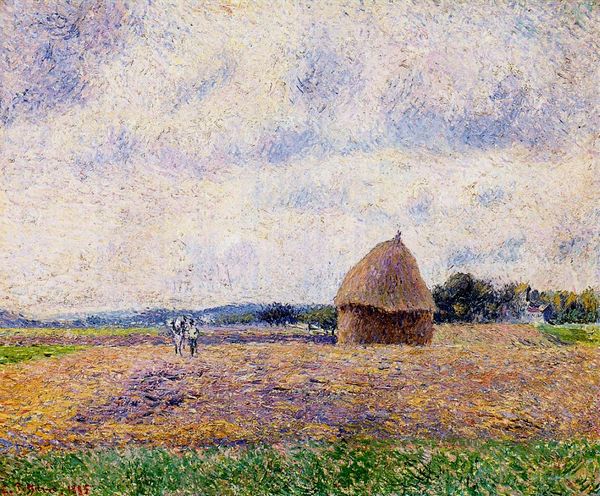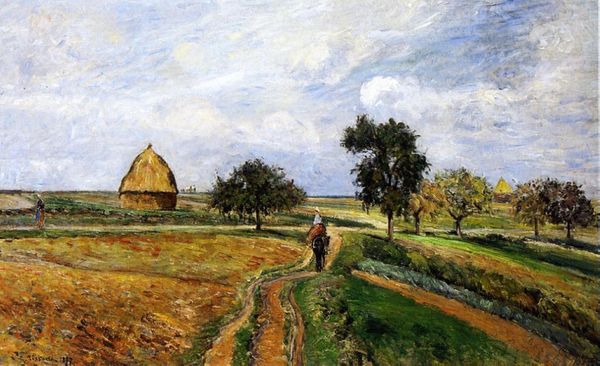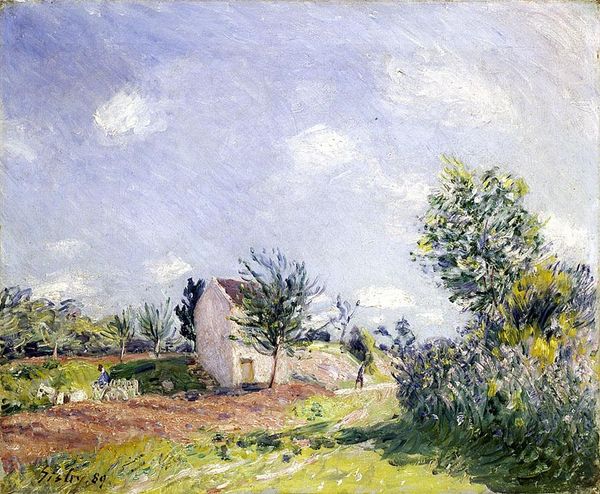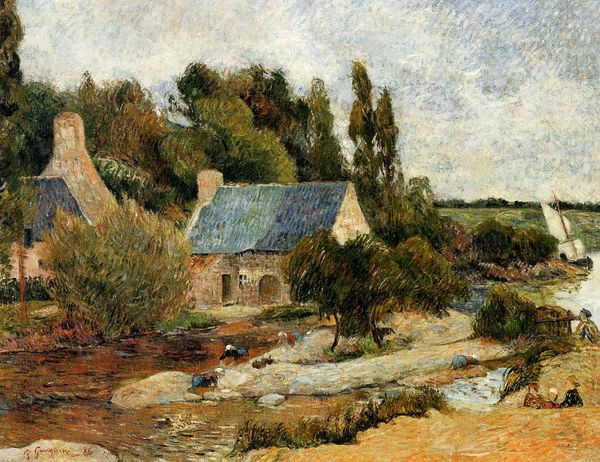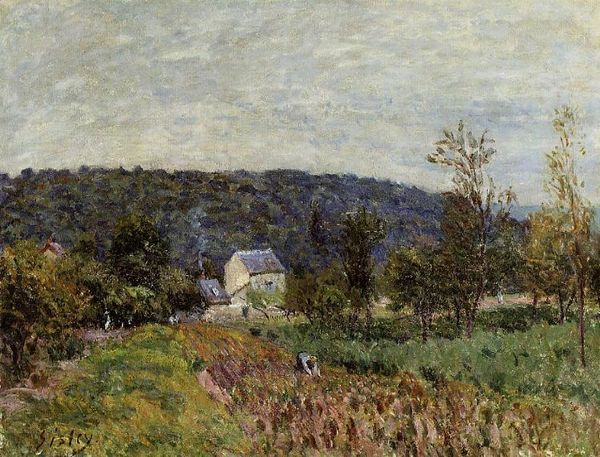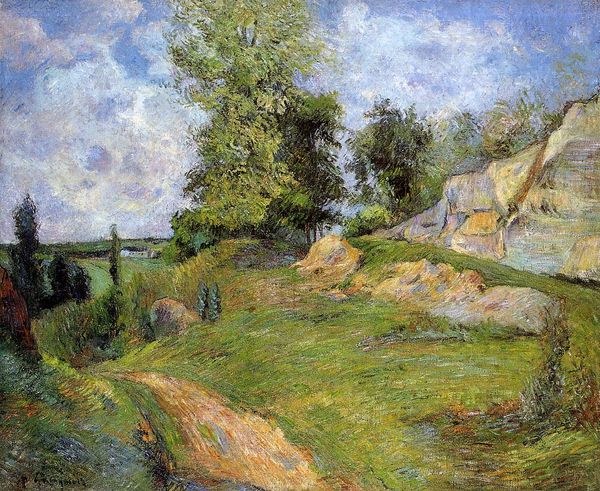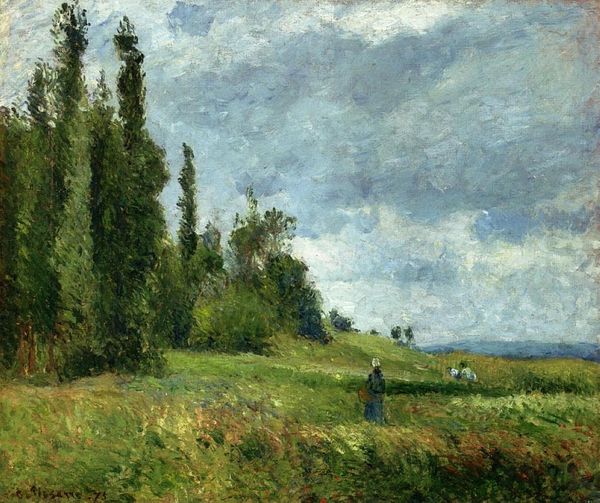
Copyright: Public domain
Curator: Let's discuss Maxime Maufra’s "Near the Mill," painted in 1897. Editor: Yes, this oil painting offers a glimpse of a cityscape dominated by a striking windmill. There's something charming, almost idyllic about it. What captures your attention in this work? Curator: I'm interested in the context of production. Consider the windmill, not just as a picturesque element, but as a tool, a piece of industrial architecture central to the local economy. What kind of labor would this landscape have supported, and how might the figures within it be positioned relative to this activity? Editor: So, you're less focused on the aesthetic appeal and more on the practical functions represented? Curator: Exactly! The textures created by the oil paint mimics the rough, almost coarse, feel of the architecture. What sort of socioeconomic standing can be attributed to the person walking down the road? Do the colors, textures, and architectural layout hold clues? The painting becomes a record of resource management, manual labor, and local lifestyle, right? It allows us to examine how this landscape was inhabited and what supported that community. Editor: That’s fascinating. I hadn’t considered the windmill in terms of local labor practices at all! Curator: It’s easy to get swept up in the "pretty" Impressionist aesthetic, but looking at the materials and how they portray labor tells us a lot about that place and time. Editor: I'll definitely remember to consider production and class more closely when viewing art in the future. Thank you!
Comments
No comments
Be the first to comment and join the conversation on the ultimate creative platform.
